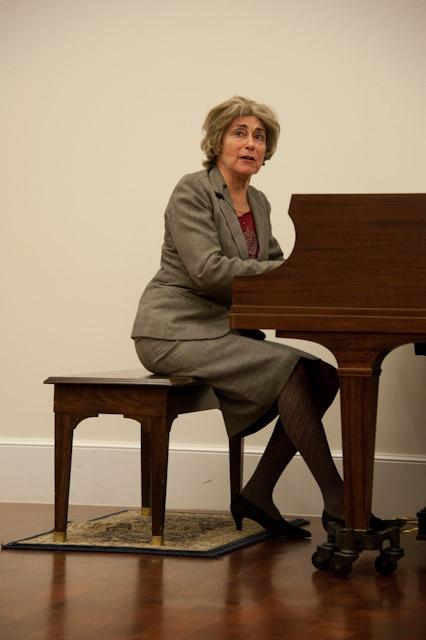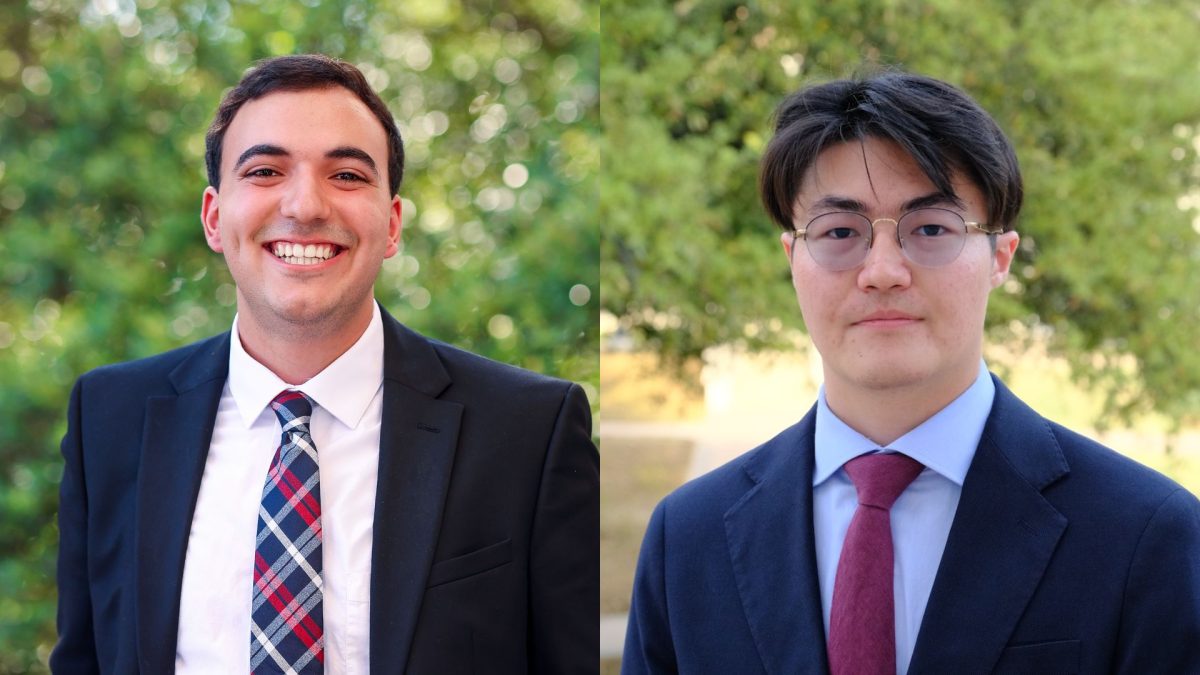
Claudia Stevens’ solo performance of “An Evening with Madame F” Wednesday evening in Prothro Hall took the audience through the experiences of women who survived Auschwitz as entertainers. (Sidney Hollingsworth/The Daily Campus)
“An Evening with Madame F,” organized by SMU’s Embrey Human Rights Program, explored the experiences of women who survived Auschwitz and took place at the Perkins School of Theology Wednesday evening.
The work is based on first-hand accounts of experiences of the Holocaust from her own family members and of several concentration camp musicians including Fania Fenelon Stevens entertainers.
“An Evening with Madame F” was also produced for television by PBS affiliates WCVE and WHTJ.
Stevens applied her skills as a pianist, singer and actor to depict struggles of holocaust victims who found themselves entertaining their peers and their Nazi tormentors in concentration camps in order to live a day longer.
Scenes of defeat, hope and strength showed how the holocaust victims struggled to reinvent their acts so as to win favor from their tormentors.
Ironically, it was not only the Nazis who tormented them.
Some of the Jews in the camps also assumed power of their peers and pushed them to extremes in pursuing their own survival goals so as to win favors from the Nazis.
They also showed that it was not just the Nazis who tormented them.
Some of the Jews in the camps also assumed power over their peers and pushed them to extremes as they pursued their own survival strategies in order to win favor from the Nazis.
After the performance, Stevens took several questions from the floor.
A member of the audience asked if she had any connections to the holocaust.
She said that her parents had tried to keep her Jewish background unknown to her but that her parents were victims of the holocaust.
The first time she found out about her Jewish heritage was when she was a teenager. She chose to use the holocaust as a context to communicate the horrors of the period.
“It is difficult to feel I have not betrayed someone,” Stevens said. “There are still a few holocaust survivors left.”
Another member of the audience asked Stevens how she dealt with the trauma from the holocaust as a second-generation survivor.
Stevens said it came naturally to her.
Stevens also added that the torment did not always come from the Nazi tormentors; some of the tormentors were fellow camp inmates who used their weaker peers to please the Nazis.
Dr. Harriet Cohen, associate professor at Texas Christian University, said she was impressed by the intensity and the depth of Stevens’ performance.
“She did an amazing work incorporating music and making the scenes carry the audience to the end,” Cohen said.








